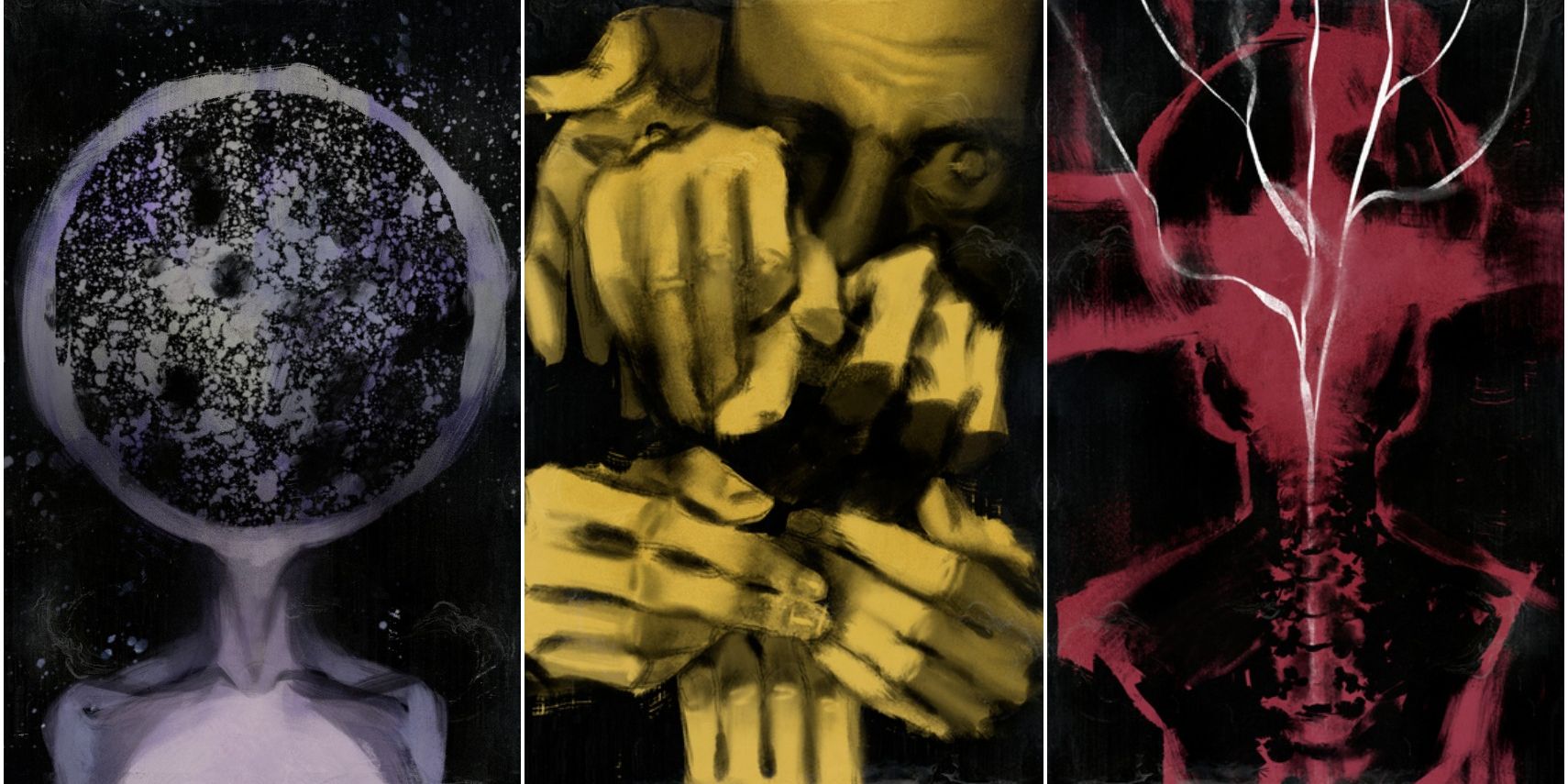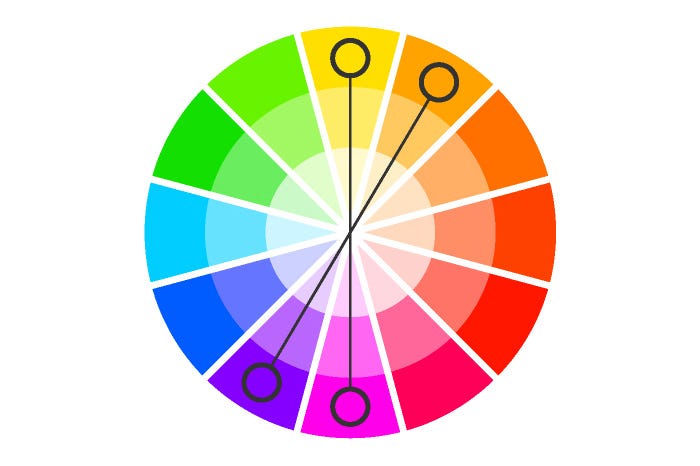Additive Colours
RGB – creates colour by mixing and adding light. You can’t negatively subtract light – which is why this method of representing colours is called additive.
RGB is used to show images on screens for electronic devices – a screen is made up of many LEDs that use RGB to represent different colours.
Subractive Colours.
Cyan, Magenta, Cyan and Black (CMYK) – This method of representing colours is used in printing onto paper, because Cyan, Magenta, Yellow and Black can be used to create any colour – the paper that is being printed on is used for representing the white in a certain colour. The printer is subracting the amount of white in a certain colour by using black ink.
Complementary Colours.
Complementary colours are colours which directly oppose each other on the colour wheel. They create a strong contrast. If both colours were mixed together, they would make grey. A complementary colour scheme is best used when one colour is dominant in the piece.

Split Complementary.
Split complementary colours are three colours that go together in a colour scheme rather than two, where one colour is used with the two colours adjacent to the colour that it is opposite to on the wheel.

Analogous.
Analogous colours are three colours adjacent to each other on a colour wheel.

Triadic.
Triadic colours are three colours that are evenly spaced on the wheel.

Monochromatic.
A monochromatic colour scheme uses only one hue (colour on the colour wheel.) With the variation coming from the difference in the colour’s saturation and brightness.

Tetriadic.
Tetriadic colour schemes use two sets of complementary colour harmonies.

Example in Art.
Here is a piece of art that i found that makes use of a blue and green analogous colour scheme. It’s called Discohead and it’s by Jan Ognev.
https://www.artstation.com/artwork/oA1y1L

It makes use of a colour scheme similar to this:

Conclusion.
In this lesson, I was introduced to some colour theory conecpts and basic types of colour combinations. This knowledge will be useful in creating my own work to make effective and interesting combinations of colours.